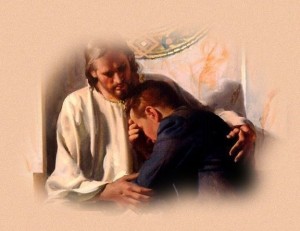Personal Revival Means Right Relationships with People (Chapter Three)
But if we are living in the light, as God is in the light, then we have fellowship with each other, and the blood of Jesus, his Son, cleanses us from all sin (1 John 1:7 NLT)
In Chapter Three of The Calvary Road by Roy Hession, Hession examines my need for transparency in relationships. If I want to experience on-going personal revival, I need to be in right relationship with my family and friends. Remember that personal revival is heart change: confession, repentance, joy, Spirit-baptism, and gospel-driven evangelism. If my heart is really different then the way that I treat people will be different too.
As the spokes get nearer the center of the wheel, they get nearer to one another. But if we have not been brought into vital fellowship with our brother, it is a proof that to that extent we have not been brought into vital fellowship with God (pg.36).
As a pastor, I have heard expressed many times, “I love Christ, but I can’t stand people,” or ” I love Christ, but I don’t care for his Church.” However, it’s not possible to claim that you love Jesus without being in love with his people. First John teaches that my relationships with people reflect my relationship with God (1 John 2:9; 3:14-15; 4:20).
Everything that comes as a barrier between us and another, be it never so small, comes as a barrier between us and God. We have found that where these barriers are not put right immediately, they get thicker and thicker until we find ourselves shut off from God and our brother by what seem to be veritable brick walls. Quite obviously, if we allow New Life to come to us, it will have to manifest itself by a walk of oneness with God and our brother, with nothing between (pg. 36).
First John 1:7 says, “If we walk in the light, as he is in the light, we have fellowship with one another . . . .” As Hession states, “Light reveals, darkness hides.” Darkness is sin, it is hiding my true self. It is hypocrisy–my hypocrisy–I act one way toward others, but inside I am faking it. Sin is there, but I pretend to be righteous. “So we are lying if we say we have fellowship with God but go on living in spiritual darkness; we are not practicing the truth” (1 John 1:6 NLT).
Sin made our first parents hide behind the trees of the garden and it has had the same effect on us ever since. Sin always involves us in being unreal, pretending, duplicity, window dressing, excusing ourselves and blaming others – and we can do all that as much by our silence as by saying or doing something. This is what the previous verse calls “walking in darkness” (1 John 1:6). With some of us, the sin in question may be nothing more than self-consciousness (anything with “I” in it is sin) and the hiding, nothing more than an assumed heartiness to cover that self-consciousness; but it is walking in darkness none the less.
However, there is freedom from personal hypocrisy, freedom to treat others with sincerity and truth, and freedom to love people as Christ loves them. In the most precious words of First John 1:7, ” . . . the blood of Jesus Christ cleanseth from all sin” (1 John 1:7 KJV). At the Cross, I find-and you find–the forgiveness of sin, the guilt of sin removed, and the power of the Holy Spirit in victory over sin.
Everything that the light of God shows up as sin, we can confess and carry to the Fountain of Blood and it is gone, gone from God’s sight and gone from our hearts. By the power of the precious Blood we can be made more stainless than the driven snow; and thus continually abiding in the light and cleansed by the Blood, we have fellowship with God (pg.39).
At the foot of the Cross, my cleansing from sin is not just about me, but my cleansing is also about others.
In 1 John 1:7, of course, the purpose of “walking in the light” is that we might “have fellowship one with another.” And what fellowship it is when we walk this way together! Obviously, love will flow from one to another, when each is prepared to be known as the repentant sinner he is at the Cross of Jesus. When the barriers are down and the masks are off, God has a chance of making us really one. But there is also the added joy of knowing that in such a fellowship we are “safe” (pg.42).
Lord, I pray that on our journey toward personal revival, you would convict us of our wrongful attitudes and actions toward others. I pray that you would cleanse us, renew us, and restore us. I pray that the newness of life that you generating in us will be seen by others as the work of your gracious grace. Amen.



